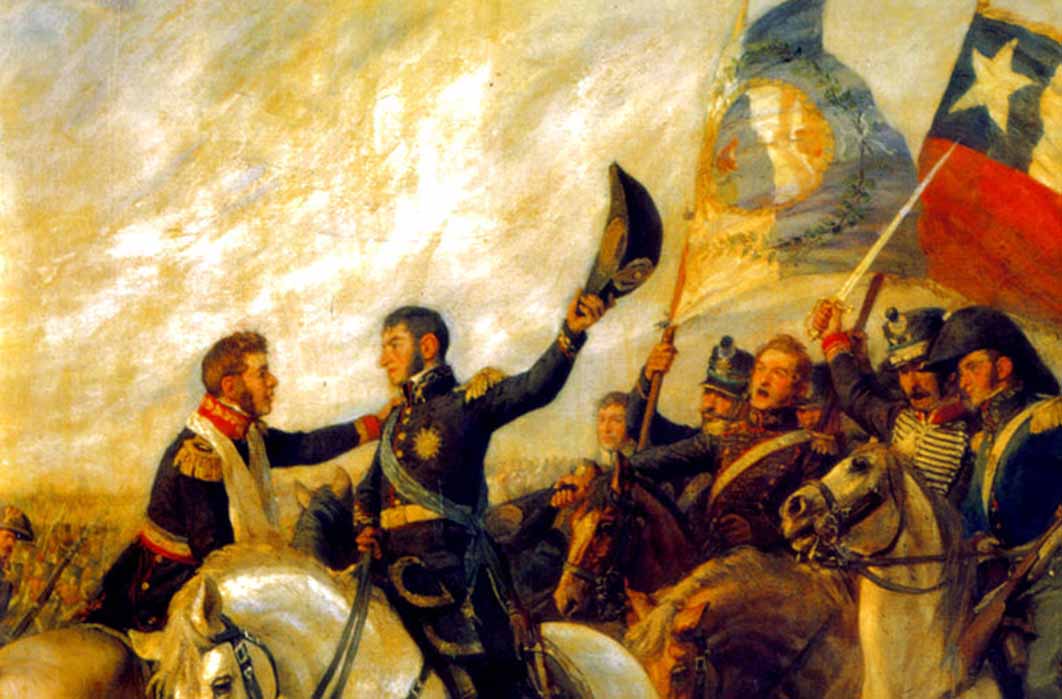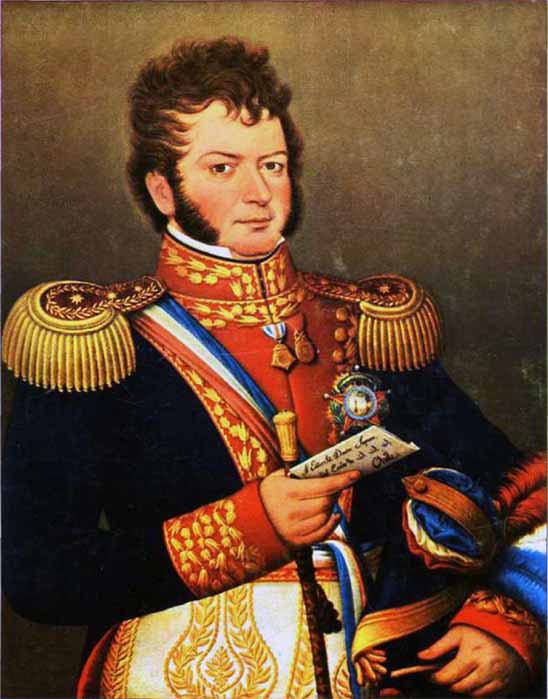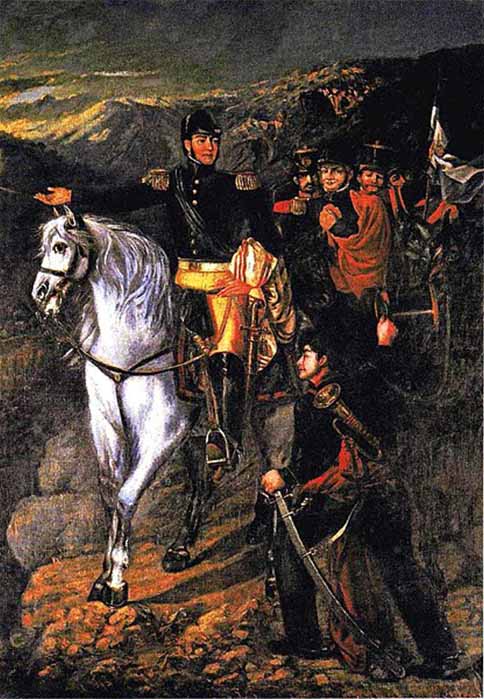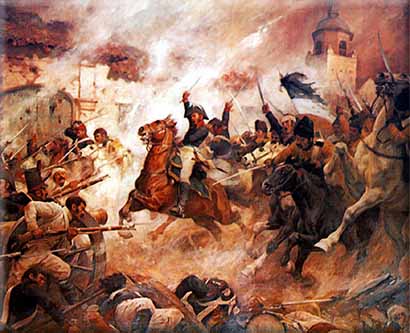
Irish Liberators In South American Independence Wars
For much of its history Ireland was just one of a legion of realms conquered by the British Empire in a morally reprehensible quest of world domination. The road to independence was long and arduous, and was particularly challenging during the 19th century when the British Crown was at the apex of its power. As a result, many Irish or Irish descended revolutionaries chose to employ their talents elsewhere, and to fight for a parallel cause that could be more realistically achieved. With the Empire of Spain collapsing, many inhabitants of the Emerald Isle decided to forsake their motherland for South America, where they contributed greatly to its liberation and later national development. Here are six of the most interesting tales.
Bernardo O’Higgins: Deliverer of the Chilean Nation
Born in 1778 in Chillán, Chile, Bernardo O’Higgins was the illegitimate son of María Isabel Riquelme de la Barrera y Meza, the daughter of a wealthy landowner, and Ambrosio O’Higgins, an Irish expatriate who had risen through the ranks of the Spanish colonial administration to become governor of Chile and viceroy of Peru.

Portrait of Bernardo O'Higgins holding the Chilean Constitution, by José Gil de Castro. Instituto Geográfico Militar de Chile (Public Domain)
Taken from his family to be formally educated under the guardianship of his father’s merchant friend Juan Albano Pereira, O’Higgins later returned to his mother’s fold to complete his schooling at a learning institute ran by Franciscan friars. It was here that he developed an appreciation Chile’s indigenous history. Following a short spell in Spain and a brief fling in England with the daughter of a respected headmaster, O’Higgins came into the orbit of a Venezuelan revolutionary based in London, Francisco de Miranda, and was moved by his call to liberate South America from the Spanish. O’Higgins would always fondly look back on his time in England, and for the rest of his military career he would surround himself with English advisors and soldiers.

Crossing the Andes, San Martín and O'Higgins, by Martín Boneo (Public Domain)
Returning to Chile, by 1813 O’Higgins was commander-in-chief of a faltering pro-independence insurrection. Outgunned at the Battle of Rancagua in 1814, O'Higgins and his family lost everything and fled to Argentina, where they scraped a living on the streets of Buenos Aires selling sweetmeats, mending clothes, and rolling cigarettes. However, determined to restore his honor, O’Higgins joined the army of another exiled revolutionary, José de San Martín, marching across the Andes and leading a column of men in the final charge against Spanish royalists at the Battle of Chacabuco in 1817. Appointed Chile’s second supreme director at the same time he stamped out the last vestiges of Spanish resistance, O’Higgins passed a series of measures aimed at fostering a sense of Chilean national identity, such as declaring that all citizens regardless of race or creed where to be known as Chileans, in addition to zealously removing the symbols and insignia of the previous regime.

O'Higgins' breakout charge at the Battle of Rancagua, by Pedro Subercaseaux. (Public Domain)




